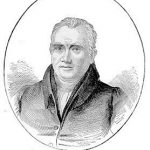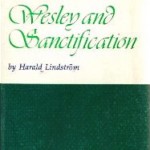A Discipline of Consecration and Listening
 I made a small change to my morning prayers. It’s a response to some of the things I’ve been reading lately. There are two issues that came to mind — consecration and openness.
I made a small change to my morning prayers. It’s a response to some of the things I’ve been reading lately. There are two issues that came to mind — consecration and openness.
I noticed that Phoebe Palmer — in her letters — emphasized not only the need for a particular moment of consecration and faith in a believer’s life, but also the need to remain in that consecrated state. This got me to thinking that praying a prayer of consecration in the morning would be a good idea — a way of reminding myself whose I am, and whose goals I am seeking. Thomas C. Upham discussed the Christian’s prayer of consecration here: On the Act or Covenant of Religious Consecration — and he includes an impressive (and lengthy) prayer written by Philip Dodderidge (1729-17510). I was wondering how I could include a Prayer of Consecration in my morning devotions — which, due to circumstances, are sometimes rather rushed. I was looking for something simple, but something that would seriously address the issue.
And, it occurred to me that there would be nothing better than the Wesley Covenant Prayer, sometimes used in worship services at the beginning of a new year. John Wesley believed that the new year was a good time to renew each person’s covenant with God, so he included in the service this prayer:
I am no longer my own, but thine. Put me to what thou wilt, rank me with whom thou wilt. Put me to doing, put me to suffering. Let me be employed for thee or laid aside for thee,exalted for thee or brought low for thee. Let me be full, let me be empty. Let me have all things, let me have nothing. I freely and heartily yield all things to thy pleasure and disposal. And now, O glorious and blessed God, Father, Son and Holy Spirit,
- thou art mine, and I am thine.
So be it. And the covenant which I have made on earth, let it be ratified in heaven. Amen.
You can find some modernized versions of it on the Internet, as well. (Here is a study of the background and uses of this prayer: A study on the Methodist Covenant Prayer.) As long as I affirm a God of love and justice — who desires the best for all people — such a consecration to God’s will and purpose is also a dedication to the well-being of both myself and all people. It seems to me that a daily prayer of consecration is a way of overcoming selfishness and self-centeredness — perennial human problems.
The other advantage to using the Wesley Covenant Prayer every morning in my devotions is that, over time, I will memorize it. It will become a prayer I can repeat without needing to see it in print.
But, it seemed to me that this was not enough. I’ve been reading Oswald Chamber’s devotional My Utmost for His Highest — I started in earnest sometime last year. In reading it — I can’t point to any particular passage right now — I have sometimes wondered how open I am to the leadership of God’s Spirit. Is God speaking and guiding, and I am unaware of it — wrapped up in my own petty concerns? I want to be open to the guidance of the Spirit throughout the day.
 Of itself, the Covenant prayer seems too passive — I want to pray some simple prayers that will give me the right perspective for living throughout the day. So I needed a simple prayer that would remind me to be open to the guidance of God throughout the day. I couldn’t think of anything more appropriate that the simple prayer that Eli taught to young Samuel in the tabernacle (1 Samuel 3:9 NRSV):
Of itself, the Covenant prayer seems too passive — I want to pray some simple prayers that will give me the right perspective for living throughout the day. So I needed a simple prayer that would remind me to be open to the guidance of God throughout the day. I couldn’t think of anything more appropriate that the simple prayer that Eli taught to young Samuel in the tabernacle (1 Samuel 3:9 NRSV):
Speak, LORD, for your servant is listening.
It’s a simple prayer, but it sets the expectations for the day — that God will speak and that I will be open to hearing it. I want to expect God’s guidance and direction — and I want to be hearing when it comes.
So, I meant to print out these two simple prayers for myself to use in the mornings — until the habit becomes so natural to me that I no longer need the printed prompts.











1 Response